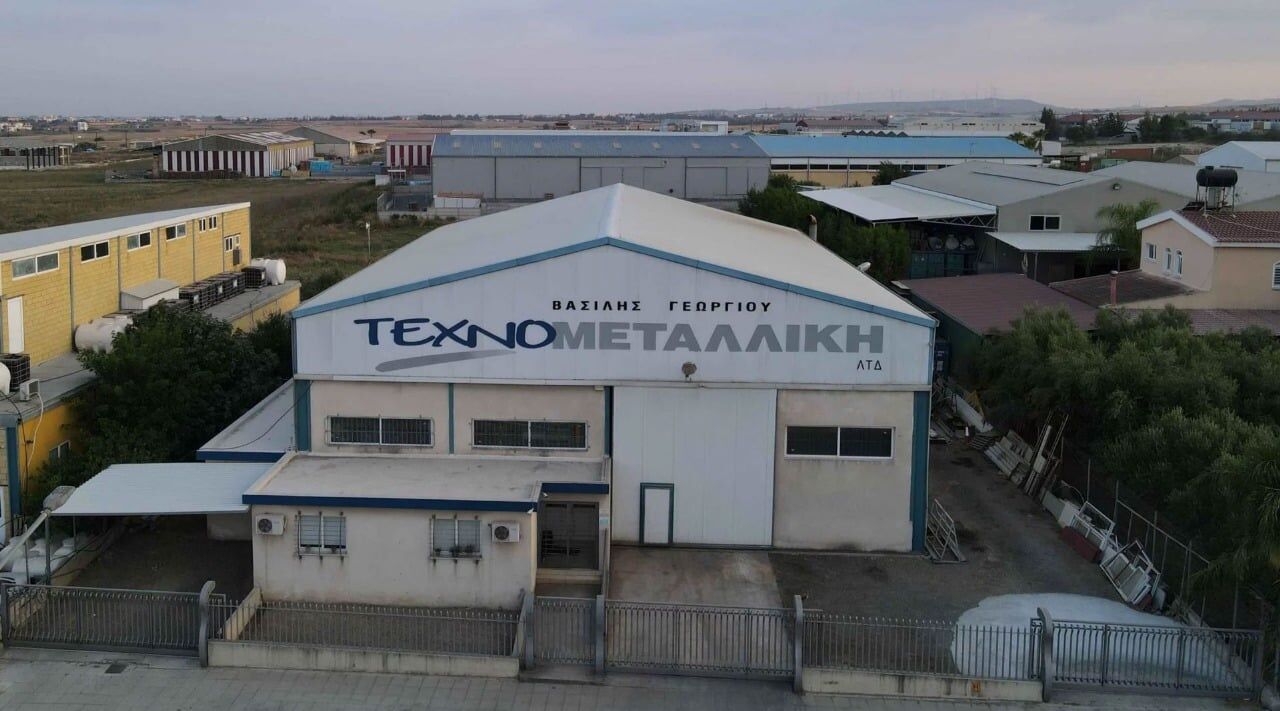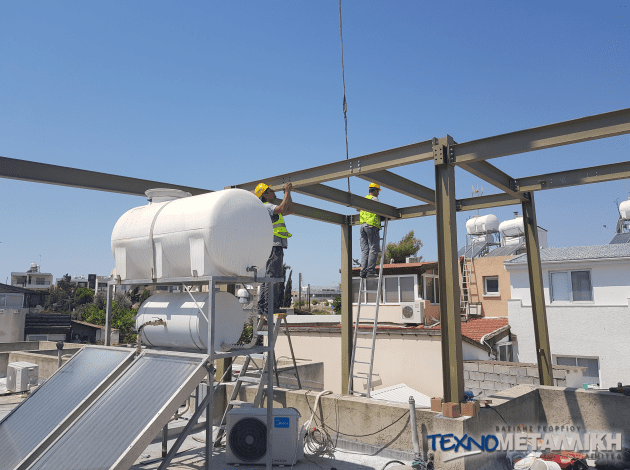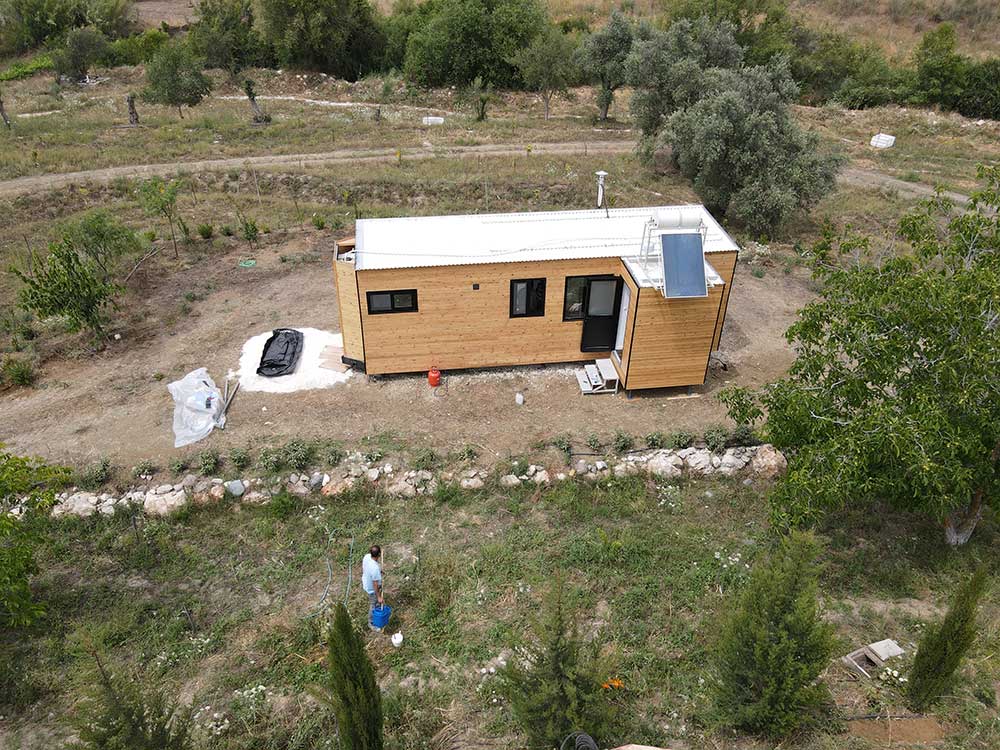
Technometalliki specializes in metal construction and decorative applications.
Address
Phone:
Email Address:
Location:
15 Filoktiti, 7101 Aradippou
Cyprus

Metal Building Contractors in Cyprus

High Quality Metal Designs and Constructions

Custom Prefabricated Homes
Expert Solutions
Provide Quality Services.
About our Company
Metal Construction and Decorative
Technometalliki specializes in metal construction and decorative applications. Passion for perfection and a love of metals were the raw materials with which our company created a series of works of art, specially constructed in order to give a unique view of the spaces of a modern home, which remain unchanged over time with respect to the quality of their construction as well as their ergonomic.
High Quality Metal Designs & Constructions
For us every new design, every new project and every customer comes with a goal in mind: To deliver up to the highest quality and standards and forge personal relationships that will go long way.
Talk to me personally about what you have in mind and I can assure you that we will strive to make your dream design a reality!Vasilis Georgiou
Founder & Chief Designer
Common Inquiries
Frequently Asked Questions
1. How long does it take to erect a steel building?
The time taken to erect a steel building depends on the size and complexity of the project. It also depends on other factors like location, weather conditions, and design customisation. The time taken to build a steel structure also depends on whether it is prefabricated or custom-built. For prefabricated structures, the time taken is less compared to custom built because the steel components are fabricated in the industry setting, which results in quick assembly and easier transportation.
Custom steel building requires more time to complete because every part of the structure must be precisely measured, cut, and welded together on-site. For more details, contact our steel structure contractors in Cyprus.
2. What are the benefits of prefabricated metal buildings?
Over the years, prefabricated metal buildings have become increasingly popular for the following reasons, including:
Affordability – Compared to traditional construction methods, prefabricated metal buildings are cost-effective to build and install. These structures are built in a factory-controlled environment employing the best quality control and efficient measures. This results in a reduced cost of production.
Long-Lasting – Prefabricated metal designs are built using high-quality steel to withstand extreme weather conditions such as hurricanes, heavy rain, and storms.
Energy-Efficient – Prefabricated metal buildings are fitted with insulation, and most structures come with skylights, windows, and vents. This increases natural light and ventilation, which reduces the need for artificial heating and cooling, leading to cost savings.
Quick Construction – Prefabricated buildings are built in a factory setting; hence the construction process is streamlined to reduce the time taken to complete the building.
Customisable – Prefabricated metal buildings come in various sizes, shapes, and designs, allowing you to choose the right option that fits your needs. There is more room for customisation, giving you a lot of flexibility when designing a building.
3. Will my metal building meet the local building codes?
Local building codes ensure that all constructions in the area are safe, durable, and suitable for their intended purposes. Failing to meet the standards published leads to safety concerns, financial loss, and even legal penalties. At Technometalliki LTD, we employ a unique construction process that ensures all our metal buildings meet or exceed local building codes.
During the metal building process, our metal building contractors initially start with a thorough review of the client’s plans which helps us identify any potential issues that may arise during the construction process. After this review, we work closely with the client to design a building that meets their needs while still adhering to local building codes. We also ensure that our building plans are approved by the local building authorities before the commencement of the project.
4. Are steel frame buildings sound-resistant?
Yes! Steel frames are designed to be sound-resistant and are commonly used in structures where noise reduction is critical, such as hospitals, schools, and offices. This is because the metal frame helps to reduce the transmission of sound waves, creating a quiet environment. Moreover, when properly insulated, steel frames and walls are tight and less susceptible to gaps, preventing noise from seeping into the building. In addition to insulation, some buildings require noise insulation and treatment materials that dampen vibrations to counteract noise amplification. Contact our steel structure contractors in Cyprus for more information.
Check our photos
Our Gallery
Trustindex verifies that the original source of the review is Google. Excellent work from the Technometalliki team, completely professional from start to finish. specialized staff in construction and installation. I highly recommend them.Trustindex verifies that the original source of the review is Google. Πολύ καλός προγραμματισμός προεργασία και προετοιμασία πριν την εργασία. Πολύ καλή ποιότητα στο αποτέλεσμα.Trustindex verifies that the original source of the review is Google. Excellent work in this high demand stair handle bars with led light!! Excellent customer service throughout the whole process. Thank you so much Vassils!! 🙏Trustindex verifies that the original source of the review is Google. A fantastic company with great design capabilities and prompt deliveries. Always eager to solve problems and with great response. 💪Trustindex verifies that the original source of the review is Google. Excellent work done from Vasilis and his employees. Fully professional, good prices and excellent quality of the product we have bought. Also delivered on the agreed date. 5/5.Trustindex verifies that the original source of the review is Google. Best company in Cyprus Beautiful gates and railings for my home Good and unique design ideas Helpful and friendly staff Good prices and on timeTrustindex verifies that the original source of the review is Google. Very knowledgeable people. Excellent customer service and easy to work with.Trustindex verifies that the original source of the review is Google. Best company in Cyprus! Best quality products! Friendly and kind stuff! Reasonable prices!Trustindex verifies that the original source of the review is Google. Best company in Cyprus for Metal constructions. Experienced professionals with great service!